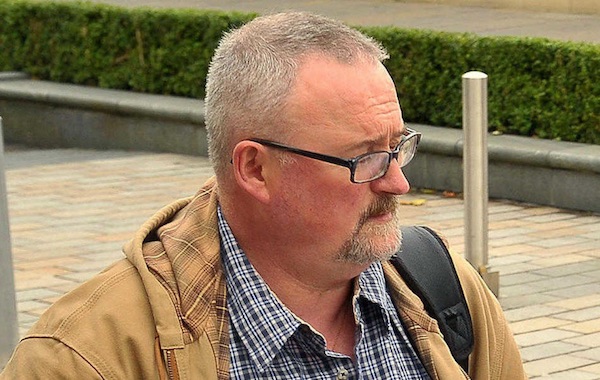
Former IRA Volunteer and blanketman now historian, author and political commentator, Anthony McIntyre, addressed a gathering which marked the 10th anniversary of the official unveiling of the Duleek Hungerstrike Monument.
Good Evening. I’ve been at this monument a couple of times now. It’s always an emotional experience to think of the life lost that lies behind it. The life lost in the course of working towards setting it up and securing its construction and bringing it to the absolutely beautiful state which it is in today: a proud and fitting tribute to those brave IRA, INLA Volunteers who died over the past century on hunger strikes in British and Irish prisons.
I don’t intend to speak too long tonight - I think you might find the next speaker more interesting - but I do feel and I’m deeply honoured to be here and I’d like to thank the Monument Committee for the sterling work that it has done and often does it in very difficult circumstances. The gathering here is fine, everybody sees everybody else, we’re soup of the day and the time that’s in it but throughout the year there’s a lot of cold soup drank by those people who trudge the streets, go to meetings, give up their free time to make these events possible and they expend the energy which goes into the construction of these most endearing monuments.
When I came over here tonight I was brought over by a woman who, Shirley Matthews, a close friend of mine, who stood on the bridge in Drogheda for the hunger strikers during that traumatic time. When I got here I met a former blanketman, the brother of Patsy O’Hara who died on hunger strike in May 1981 in the H-Blocks - one of the ten Volunteers who died.
When I think back to the blanket protest I never see it as a life lost but as a life lived differently. I met a lot of good people and it’s no shame to say that I still go out on the booze with them every year - they come down once a year from Belfast, some of them who I was on the blanket with, and we discuss old times, ‘talk shop’ - a lot of it nonsense but we’re very close. There were great bonds formed during that time which were not formed with other prisoners who were not on the blanket protest.
The blanket protest was a very violent time. There was beatings on a daily basis. We didn’t get beat, individually, every day but somebody got beat every day. There’s was always a problem. There was deep conflict. There was deep hatred. Prison staff were being shot dead on the outside by the IRA and the INLA because of the brutality that they were meting out. And in the Blocks they were coming back at us very, very hard.
Every day for years, we remained naked, locked up, twenty four seven, three-six-five - it just went on. And we learned all manner of ways of overcoming the tedium. And I suppose that was the greatest soul destroying thing: the tedium. The inability to, it wasn’t the violence as such - it was the tedium, the boredom. And that gave many of us a great intellectual thirst to understand more about the struggle and the opposition and the people we were up against. And it’s almost - I would have loved to come here and say: Victory to the Blanketmen!
But when I look at what’s happening today and I look at people, former Republicans, lining up to be patted on the hand or head by Prince Charles and British royalty I just feel it’s not Victory to the Blanketmen! but Victory to the Banquetmen! - the men and women who can go to banquets and sit and suck quails’ eggs and drink pink gin - and to me it seems absolutely shameful that Republicans are reduced to this.
There’s no sadder sight in the world than to watch a slave kneel down and kiss his chains or to kiss her chains. What I would say is the greatest crime against the Republican hunger strikers, Republican prisoners who protested for political status: It’s not actually what Thatcher did to them because Thatcher couldn’t win over them - couldn’t secure a victory - even though it was pretended that she did but we know from Richard O’Rawe and others that the Republican hunger strikers actually broke the back of Thatcher - the agreement that was reached was actually sabotaged by the leadership of the Provisional Movement.
But the point that I want to make is that what actually undermines and is a slap in the face of every hunger striker and every blanket protester is when you lose your politics. It’s that when you lose the ability to think politically. The 1981 hunger strikes and the previous hunger strikes were always political. And now when we no longer have political activists - but we have a crowd of sheep - who follow blindly and abandon positions daily. Those people - when you lose your politics and stop thinking politically and stop acting politically and stop acting like a political, intelligent human being and behave like a mindless sheep prepared to follow wherever you’re taken - even over the edge of the cliff - that to me has been the greatest insult to Republicanism. And when people leave here today with whatever views they leave I’d only make one appeal whatever path you take is to: Think politically and never, ever follow blindly. Thank you very much.
![[Irish Republican News]](https://republican-news.org/graphics/title_gifs/rn.gif)
![[Irish Republican News]](https://republican-news.org/graphics/title_gifs/harp.gif)

